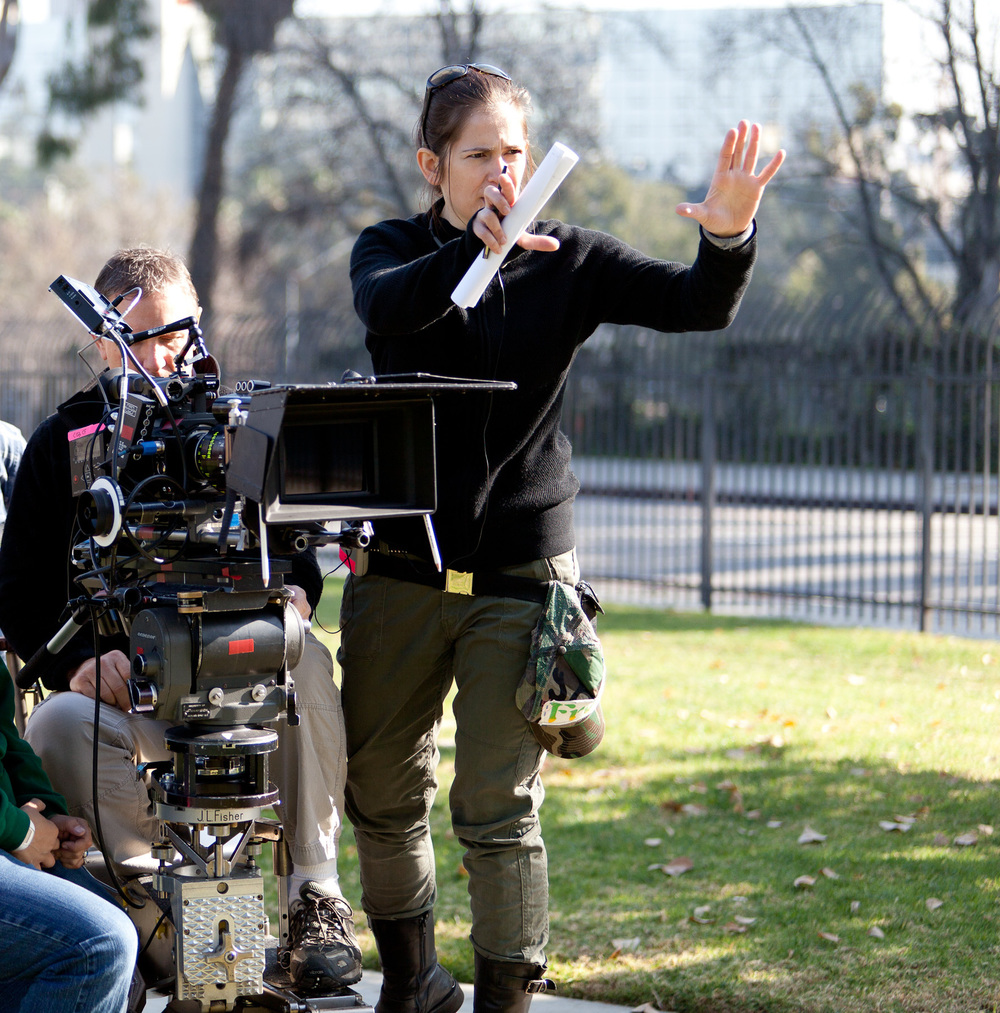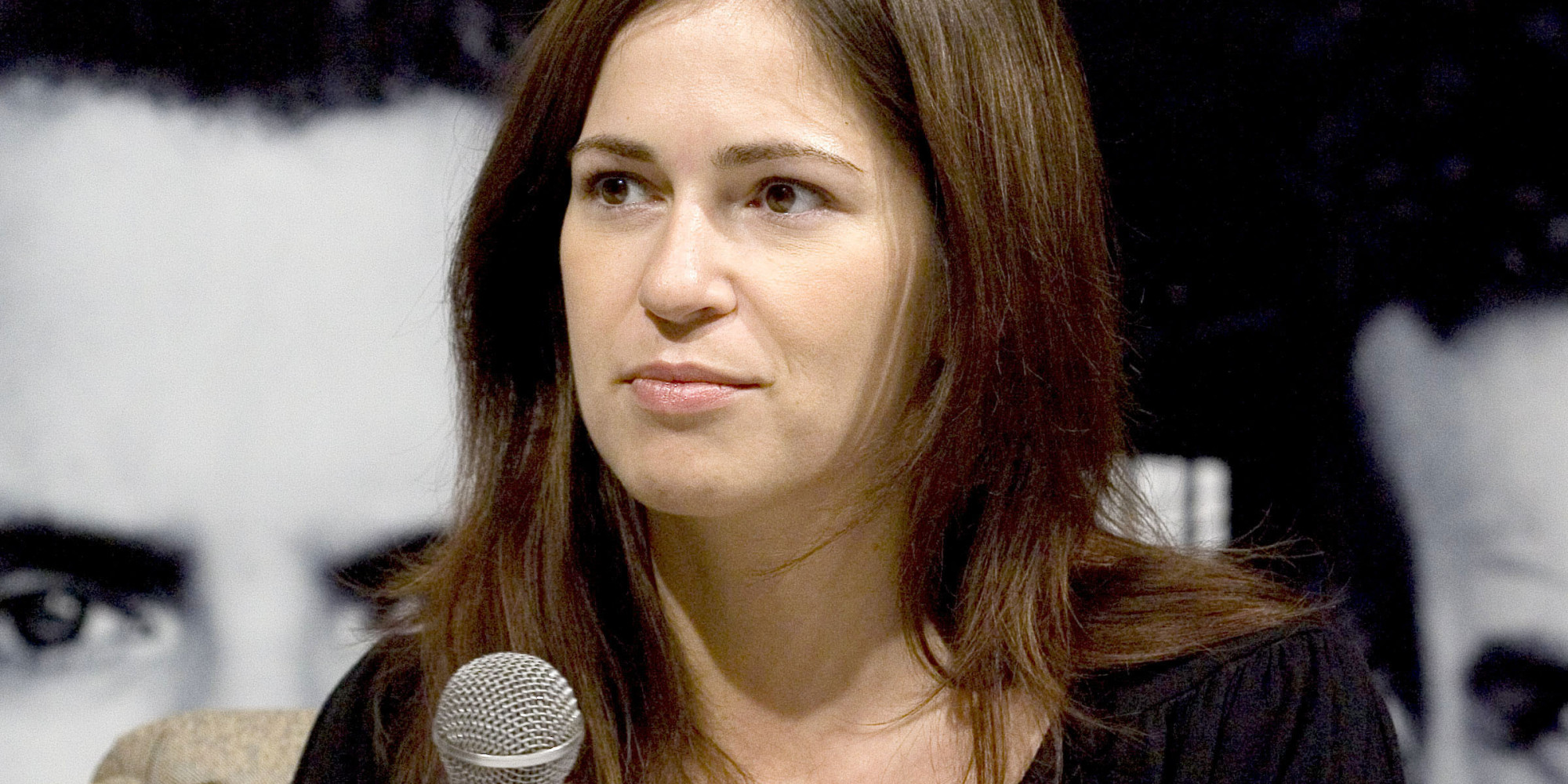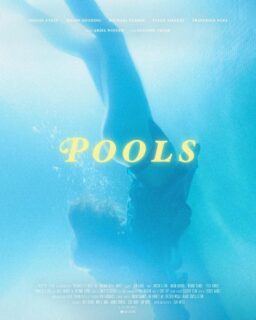In 2005, Lexi Alexander announced her arrival on the film scene when “Green Street Hooligans” won both the SXSW Jury Prize and Audience Award. Born in Germany, Alexander moved to the United States in the ’90s, where she began a career as a stunt woman, before becoming a director with her striking debut, which recently got a much deserved re-exhibition at the Littleton’s Alamo Drafthouse, along with her underrated follow-up “Punisher: War Zone.” She sat down with me recently to discuss her career, her outspoken presence on Twitter, hashtag activism, “Wonder Woman,” “Mad Max: Fury Road,” and much more, including the mess we’ve gotten ourselves into by letting Caucasian men rule everything.
Thank you for making time for this.
Did you know Roger gave me two good reviews?
He was one of the nation’s top critics. With “Punisher,” I knew we would have have tough time critically, but I knew that Roger wasn’t snobby, like some. But, you know, it’s “Punisher.” It was supposed to be a thrasher B-movie, and for that, as nobody else could, he gave me the best compliment, by saying it was “one of the best-made bad movies [he’d] seen.” Which is exactly what it was supposed to be.
In 2008, all of a sudden it was like the birth of these mega-films. We were compared to “The Dark Knight,” but people didn’t realize that I had $22 million below the line.
I would have guessed much higher. You got a lot for your money’s worth. I loved how “Punisher: War Zone” embraced the comic book form. It reminded me Ang Lee’s “Hulk,” which I also adore.
I looked at what fans were complaining about with the film with John Travolta. Many said that it wasn’t like the comics, that it was too light and cartoon-y. There’s a certain point, with that type of violence, where you have to go cartoon-y, to not just be a violent asshole, in my opinion. So, I went into a comedy world to try to adapt, to print this comic book alive, shot by shot, with the same colors and look.
With “Green Street Hooligans,” Roger gave me an amazing review, which I’ve had on my wall ever since. As a young filmmaker, you cry when that happens. [Siskel and Ebert] even reviewed it on their show. They were huge. With “Punisher: War Zone,” I expected him to just tear the movie apart like an upper class critic, but he didn’t. He knew film. I wonder if we’ll ever have anyone like that again.
I don’t think we will. And it’s wonderful that you can take that much positivity away from what was technically a thumbs-down review.
That’s funny. I actually read the whole thing as positive. All I remember was thinking, this is the best you can get from a major film critic who generally doesn’t like these kinds of comic book movies. He analyzed it, and I felt that any young guy reading his review would probably end up in the theater, so I never read that as a bad review.

Let’s talk about your presence on Twitter, and how these kinds of platforms can help or hinder the causes you’re known for, such as the oppression of women in Hollywood. Is there a struggle between the greater exposure that social media allows and the group think that the Internet seems to encourage? As a woman, I know that speaking out on the Internet is a wholly different experience for you than it would ever be for me.
Well, I know that I don’t get it as a bad as a lot of other women. And it isn’t necessarily group thinking. There’s a lot of talk now about the PC police, and “why is everything bad?” It isn’t. What it is, is that marginalized and oppressed people who have never had a soapbox, who have never been given a microphone, suddenly have a microphone. Black Twitter is extremely powerful, for instance. They’ve shut down TV shows, actually canceled TV shows. They’ve also managed to get two new actor/writers on “Saturday Night [Live]” through Twitter.
It seems to some people, especially older white comedians, that everybody is now complaining about everything. It’s just not the case. Those people have a stage—somebody has given them a massive soapbox with a megaphone, and some people can’t adjust to the noise.
What I don’t understand, is, when people of color say that an issue is racist, or that a schtick is racist—that person can continue to do their thing, nobody is shutting it down, but still, why would you argue? To suggest that they’re not affected? Instead of arguing about the PC police, they should just say, “Oh, well, I must have missed that.” It doesn’t mean you have to stop, but I would listen to it. I don’t get it. That and, before the internet, I didn’t know about MRAs.
Ha! I’ve learned to simply not engage with that crowd. What have you thought about some of the recent hashtag movements, such as #firstharassed and #yesallwomen?
I don’t get into that side as much, but that was a big thing. And of course, there are always some guys who have to point out that “not all guys rape,” but what needs to be heard are the people saying “let me tell you what happens to all women,” which is very true.
I have a lot of guy friends, from martial arts and film, and soccer. I actually barely know women. Most of my really good friends are guys I see at the gym every day, and a lot of them have told me that it never occurred to them what a women has to think about, for instance, just if they decide to go to a party. Who’s driving them there? Who’s watching their drink? Who’s driving them back? How could they get out of the room or the car that they’re in?
As a dude, you never have to consider that. And that’s when the internet becomes amazing, really. A lot of people learn a lot of things, very quickly, but it also has the backlash effect. Like the people who want to shut down the female “Ghostbusters” movie. “You ruined our childhood!”
On “Punisher: War Zone,” I know that you experienced difficulty with the production, and that there were issues concerning your input on the script.
There’s a lot going on there. In filmmaking, in the producing world, there’s an unfortunate thing where we don’t identify them all as producers, even the ones who are just good at buying rights at the right time, or being good politically.
As a director, you need the Saul Zaentz type of producers. Zaentz was a guy who literally capped the storm outside of the director so that they could do their job. That’s a great producer. The producer is supposed to be the person who thinks about the money so that the director doesn’t have to—about which actor always comes late and drunk, which locations we aren’t getting. They’re basically the organizers, the generals, the parents, so that the director can be this kind of kid in the chair who can draw and paint.
That’s where you get the best results. But few producers do that now. You, as the director, you get sent in there and your agent isn’t always with you, so you rely on someone else, except they’re not that kind of producer. Usually, they’re more political, and that’s what becomes a conflict. You feel like that kid, but instead of the parent keeping the storm away, it’s like they’re pushing you into traffic.

I can only imagine the pressure. I empathize with your passing on “Wonder Woman.”
Yeah, like I’d really want to have to carry that on my shoulders: the first leading female superhero character, as a female director, in a PG-rated movie. It’s like, no.
Even with something like “Punisher: War Zone,” people either loved it, or they hated it. Patton Oswalt loved it, which was key to it becoming a cult item. He helped a lot. It didn’t help that it came out in December. I had a big fight with [the studio] about that. And then there were people, critics, who don’t read comic books at all, who don’t even know what it is. One review, which is so funny that I now have it quoted in my reel, the critic said that I should be sent to prison for my violent imagination. It’s hilarious because the images he was referring to were taken directly from the comic book. They didn’t know the source material. They didn’t prepare.
Looking back on reviews from when “Punisher: War Zone,” was released, a lot of them seem almost like willful misreadings. Along with Kathryn Bigelow’s work, your films strike me as understanding men better than most men are capable of.
I have a theory about this. One of my friends is a director named Rodrigo García, who makes mostly films about women, and who understands women 1000 times better than I ever will. Pedro Almodóvar, I could never write women the way he does. Paul Feig is another one. And people don’t talk about it. Nobody says, “How do these men write women like this?” because they’re publicly fascinated with them. I grew up surrounded by boys, in a way that I pick up every detail. That’s how I feel about Pedro, about Rodrigo, about Paul. I try to write for women, but I suck at it, I really do. What’s hard is that people don’t realize how much a woman has to put up with versus a man. However, comic book fans are not like that. They don’t just look at it that the director’s a woman. It’s more the executives and critics.
You’ve said you’d like to do an adventure film. What did you think of the women in “Mad Max: Fury Road”?
I loved “Fury Road,” and I loved how [George Miller] wrote women, but I loved it more for the sense that, for the first time in a long time there was something on screen that you didn’t expect. I grew up on 80s films, and I loved 80s films. My sense was that, with 80s films, you were always surprised, and you didn’t know what you were going to get. “Karate Kid,” “Ghostbusters,” “The Goonies,” “Tango & Cash,” all of these fucking great movies, you didn’t know what you were getting beforehand and that was your experience.
Now it’s, “Let’s see if they’re going to do “Iron Man” right, the way I want it or not.” So much is based on books and other properties, and the audience has expectations, and it’s like we’re not allowed to surprise them. Fuck me, what happened to original film?
It’s hard to be in this business when the best thing that can happen to you, really the best thing for your career is to book a story that people already know, and for you to do the best job in basically photocopying that on screen without upsetting the audience, and to get the audience to come out. Originality is much harder. But then [George Miller] did this thing based on a property that already existed and surprised everybody. It wasn’t even about the feminism. Even without that.
Did you know that George Miller asked his wife, Margaret Sixel, to edit the film?
I did not know that, but I am not surprised. Some of the greatest action editors are women, like Elísabet Ronalds, who edited “John Wick.”
Good call. I loved “John Wick,” and “Mad Max: Fury Road,” which I’ve seen it four times. It’s unimpeachable.
I know! It was like a drug! The stunts and everything. As a former stuntwoman, I had never seen stunts before like those in the last chase, with the sticks. The Polecats.
That’s saying something, because, viscerally, I know you have a lot of experience. And you’re learning new techniques now, correct? Even with the pins in your knees?
Wow, you did a lot of research.
[Laughs.] Thanks. So, thinking on the friction in the culture, is there a particular form or trope of sexism that you find especially offensive or damaging? And do you think lip service to feminism is better than nothing, or is that also damaging in the long run?
I think we all know what those really bad tropes of sexism are. What’s surprising to me is that they are still out there as much as before. Not a week goes by when I don’t read a script with a nagging wife or a helpless beauty who needs rescuing. So even with all this noise, we don’t seem to be able to change much. And yes, lip service is bad for progress. I call it PR equality stunts.
In what ways do you feel that feminist allies can best contribute? What are the tangible actions that can be taken, as far as supporting women’s films, TV shows, etc.? Even with the box office success of female-driven films, there’s a dispiriting persistence of regressive developments, such as Rose McGowan’s recent controversy.
There is a saying I once heard that goes something like “nothing will change until those not directly affected by systematic discrimination are as upset as those who are.” I believe that completely.
Often, allies just talk the talk, or tweet the tweet, in today’s world. And yes, they may re-tweet an article on the issue or buy a couple of tickets for a movie directed by a woman, but they don’t really go to bat for us, they don’t disrupt and get loud for equality. Basically, they don’t risk anything. So, it’s still us speaking out and naming names and calling for boycotts on shows that don’t hire women, and with that we burn bridges, get our names on more blacklists, and have to endure the wrath of fans who want you dead for even suggesting a boycott of their beloved show.
So yeah, it’s nice that people call themselves allies, but unless I see someone actually standing next to me in this battle, maybe even volunteering to do some of the things that essentially lead to me working less, I don’t distribute the title ally to anyone. I just acknowledge them as non-combatants.
Is it fair to say that feminism’s chief responsibility is the reshaping or dispensing of patriarchal narratives? So much of the language and culture is intrinsically biased towards the male perspective, and sometimes even subversive efforts end up catering to the status quo.
I am actually the least qualified to speak about feminism. Until I worked in Hollywood, I’ve never felt discriminated against for being a woman. The only prejudice I had experience with was growing up half-Arab in Germany. None of my movies pass the Bechdel test, and I continue to write mostly about men. I am a newbie when it comes to feminist activism, and I had to educate myself about it, especially in terms of appropriate language.
All I know is that we got ourselves into a big mess by letting Caucasian men rule everything, from narratives to criticism of narratives to fiscal aspects of storytelling. Now we have to make people aware of it and worse, we have to play a rugby style game of musical chairs with people who have had their butt parked on a comfy chair for a very long time. And they do not make room. Ever.
Speaking of the effects of Caucasian men in power, I saw that you’ve named “The Insider” as your favorite movie. Good choice.
That must have been from an older interview. Since then, I usually pick “Pan's Labyrinth.” I would say that that’s a perfect movie. With “The Insider,” if you recognize, I stole some of the cinematography. The way [Dante Spinotti] used the corner of the frame, negative space, that kind of thing.
Last question: Who is your favorite female filmmaker?
My favorite director is and will always be the amazing Euzhan Palcy. Every minute this woman is not making movies is a loss to humanity. Especially America will one day look back and say, “why didn’t we make her stay in Hollywood?” She should be hired for everything, no matter the cost.











